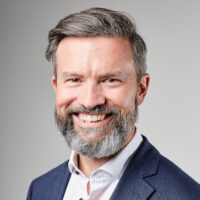
Key Quote
“If we’re prepared to re-learn how technology can enable us to resist digital manipulation of our societies, then we can actually strengthen the foundations of democracy itself.”
Winston Churchill famously said that “democracy may not be perfect, but it’s better than anything else tried before.”
No one would agree more fervently than Olaf Böhnke. This expert on European and foreign affairs believes it’s time to stop lamenting democracy’s imperfections and fight for its future instead. He works every day to combat online threats to democracies worldwide by fostering broad cooperation amongst public and private stakeholders and turning the tools of technology back against those who would misuse them. But Olaf is doing more than just fighting off threats to democracy—he is also using technology to solidify its future by spreading digital literacy and awareness so that citizens can have a more effective voice in, and oversight of, their government.
Böhnke, who is based in Berlin, worked for many years in the German Bundestag as well as the international think tank community. These days, he works closely with former Danish Prime Minister Anders Fogh Rasmussen on several democracy revitalization projects, including serving as senior advisor to Rasmussen’s Alliance of Democracies Foundation as well as the affiliated Transatlantic Commission on Election Integrity (TCEI). The TCEI—which brings together more than a dozen eminent figures from politics, media, and the private sector—fosters a global, collective-based approach to the fight against election interference. It does so by empowering individuals and institutions in the public, private, and civil sectors to raise awareness of the interference problem, share best practices on how to respond, and formulate solutions. From the beginning, the role of technology has heavily influenced this work.
“There are bad actors out there who work nonstop to undermine elections via the misuse of technology. We see their fingerprints all across the world from Ukraine to Australia to the United States. Our job at the TCEI is to figure out how to come out ahead of them in the race to protect democracy,” Böhnke explained. “In our view, the best solutions come about when all the different stakeholders—policymakers, tech companies, civil society, and others—are gathered at one table to co-create a better future.”
One of his roles with the TCEI is to convene these stakeholders and lead them through discussions of critical issues such as the role of social media platforms and freedom of speech in the global information space. TCEI hosts many such forums, events, webinars, and podcast series on everything from examining new patterns of election disinformation in Taiwan to exploring ways to build resilience against electoral interference in Georgia.
The global cooperation this engenders is key, because Böhnke believes the world is entering a period where more policymakers and companies will be looking to work together on digital rules, systems, and standards. But how those policies are formulated is important. The challenge, in Böhnke’s view, is that many lawmakers simply have a limited understanding of what they are trying to regulate. It’s one reason why enhancing digital literacy is a key priority for him.
“What we need are not just tools for the TikTok generation, but for the people who actively work on legislation that will affect these issues for years into the future—policymakers and their staff,” Böhnke said.
He has led the TCEI to step up in this area of focus, advancing out-of-the-box ideas like the Disinformation Diaries. This game-based media literacy tool has players take on the role of a fictional politician named Truly B. Veritas who loses an election due to a deepfake and disinformation campaign. The players’ mission is then to discover what happened, understand why, and figure out how to guard against a similar event occurring in the future. The project is designed not only to increase media literacy for politicians, legislative staff, and journalists, but also to help develop practical skills for navigating disinformation when confronted with it in real life.
In the early 2010s, Böhnke recalls, Internet-based technologies enabled people across the Middle East to connect and successfully revolt against autocratic rulers. “At the time, we talked about Twitter and Facebook revolutions and thought that was the turning point for the triumph of democracy in the global South. While the autocrats and bad actors unfortunately learned their lessons—and how to misuse technology to undermine democracy—there’s no reason to assume they will triumph in the end. If we’re prepared to re-learn how technology can enable us to resist digital manipulation of our societies, then we can actually strengthen the foundations of democracy itself.”
That’s why Böhnke is so focused on promoting digital literacy, and why he thinks creative approaches like the Disinformation Diaries make so much sense. “The goal is to provide individuals with the personalized tools they need to understand how things work, spot fakes, and defend themselves—and to give policymakers the background to formulate better rules of the road,” Böhnke said.
And so, while there are many challenges on the horizon for the future of democracy and technology, Böhnke thinks there are just as many reasons for optimism. “Technology is what enables us to do all these things,” he concludes. “And, critically, it is what connects us so that we can all come together collectively to collaborate on better solutions.”
Key Takeaways
- One of his roles with the TCEI is to convene these stakeholders and lead them through discussions of critical issues such as the role of social media platforms and freedom of speech in the global information space.
- The global cooperation this engenders is key, because Böhnke believes the world is entering a period where more policymakers and companies will be looking to work together on digital rules, systems, and standards. But how those policies are formulated is important.
- It’s one reason why enhancing digital literacy is a key priority for him…He has led the TCEI to step up in this area of focus, advancing out-of-the-box ideas like the Disinformation Diaries.

